Outspoken Sunni Leader Under Travel Ban For Holy Pilgrimage
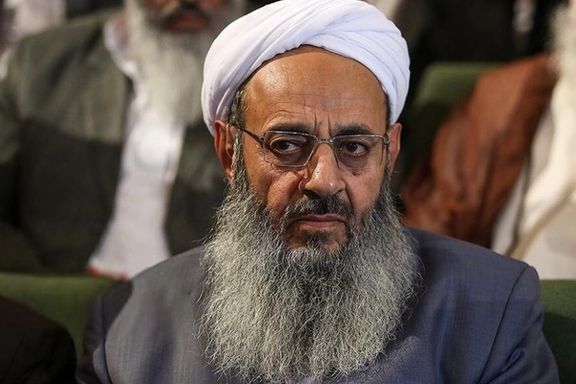
The office of the outspoken Sunni leader of Iran’s Sistan and Baluchestan province says the Ministry of Intelligence has prevented him from attending Hajj pilgrimage.

The office of the outspoken Sunni leader of Iran’s Sistan and Baluchestan province says the Ministry of Intelligence has prevented him from attending Hajj pilgrimage.
Several regime officials have opposed Abdlohamid’s upcoming Hajj trip during the next Eid festival later this month, banning him from traveling to Mecca.
Officially known as Sheikh Abdolhamdid Esmailzehi, the Sunni cleric is widely popular because of his willingness to challenge Khamenei’s absolute authority. In addition the country's Sunni minority are heavily persecuted and the cleric has long been an advocate of minority rights, to the ire of the regime.
An audio file leaked by the hacktivist group Black Reward in December revealed that the Islamic Republic planned to tarnish Abdolhamid’s reputation to curb his influence.
In November, the outspoken Sunni Imam said women, ethnic and religious groups, and minorities have faced discrimination after the establishment of the Islamic Republic in 1979. He also called for an internationally monitored referendum in Iran saying by killing and suppression the government cannot push back a nation.
Abdolhamid also said earlier that officials of the country should be selected from the secular population, noting that not all Iranian people are "religious" and as such do not accept religious authority.
“Don't blame me for this view. Some may not accept religion, but the right policy is that if they have merit and conscience, they should be employed," he said.
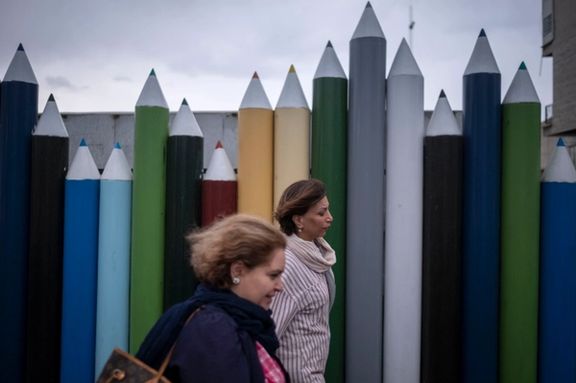
Prominent female dissident Zahra Rahnavard has warned the clerical rulers that Iranian women will eventually defeat them in the war over compulsory hijab.
Advising the rulers of the Islamic Republic to once and for all put an end to the enforcement of hijab, Rahnavard who has been under house arrest together with her husband Mir-Hossein Mousavi for thirteen years, since February 2011, also called for the abolishment of existing hijab laws.
Rahnavard, 78, was born into a family that did not particularly condone wearing the hijab. While studying art at Tehran University in the late 1960s, she became an advocate of wearing the hijab and even wrote several articles and books in its praise, both before and after the Islamic Revolution of 1979 when she became the first-ever female university chancellor in the country.
“The rulers [of the Islamic Republic] have waged a close combat against Iranian women by devising and advertising the chastity and hijab bill,” she said in a new statement, adding that they must realize that they will be “the real losers” in their war against the Iranian nation and women.
Rahnavard was referring to a bill called “Supporting the Culture of Hijab and Chastity and Health of Society” jointly prepared by the notoriously hardliner judiciary and the government of President Ebrahim Raisi, who asked the parliament to put it on its agenda with double urgency.

She said in her statement that the bill includes a “revolting list of medieval beliefs, violations of citizens’ rights and women’s natural and humanistic freedoms,” arguing that those behind the bill are unable to understand how economic, ethnic and gender discriminations should be lifted and remedied.
If the double urgency stature of the bill was approved, it would have been printed and distributed to lawmakers within six hours and debated within a maximum of two days.
The bill’s urgency was put to vote Tuesday, but lawmakers only agreed to the single urgency of the draft law, which means it will be referred to relevant committees for examination.
Women’s defiance of hijab rules is as old as the Islamic Republic itself, but it has escalated to new levels since the death of 22-year-old Mahsa (Jina) Amini in custody of morality police last September for “improper hijab” sparked nationwide protests.
The unrest gradually subsided after several months but defiance of hijab as a form of civil disobedience has increased and forced the authorities to try to stop the anti-compulsory hijab movement by resorting to various measures including new laws which center around cash fines.
Parliament speaker Mohammad-Bagher Ghalibaf (Qalibaf) said after the vote that giving the bill a single urgency did not indicate its insignificance and was only meant to provide more time for investigation.
“We want to stop [moral] depravity with this law,” he said and argued that the proposed bill has only looked at the criminal aspect of the hijab issue but that it was more a “cultural, social, and Sharia issue” and “a factor in the identity of the Islamic Republic”.
Soon after taking office in August 2021, and after weeks of harsher measures on the streets to enforce hijab rules by street patrols known as the ‘Hijab Police’, Raisi ordered all government entities to strictly implement the already existing “chastity and hijab” law.
The hijab required in the Islamic Republic consists of a long and loose dress in muted colors worn over trousers with a similarly plain headscarf that covers all hair and shoulders. Authorities including Supreme Leader Ali Khamenei say wearing a long black veil (chador in Persian) that covers from head to toe is the ‘optimal hijab’.
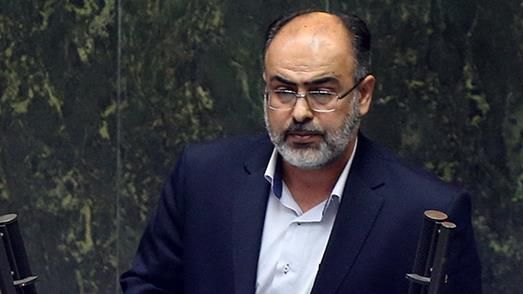
In defense of Iran's secretive government, a fundamentalist member of Iranian parliament said transparency is not necessary and petty.
Mehrdad Veis-Karami said in a video published on social networks that "God, the Prophet, and the Qur'an were not after transparency, because people do not have the capacity."
The professor of Islamic studies said: “Many MPs entered the parliament with the promise of transparency, and now they have regretted their promises."
His statements come as the majority of government institutions have refused to publicly announce vital figures of the country's economy over recent years, including the state of debts and budget deficit, the amount of consumption of polluting fuels such as diesel fuel, oil export revenues, the details of long-term strategic partnership with China and the fate of embezzlement of billions of dollars.
In its annual report published in February last year, Transparency International said Iran ranks 147th among 180 countries in terms of the extent of financial corruption.
Lack of transparency is not only limited to economic and financial issues in Iran. A wide range of issues from the downing of the Ukrainian airliner by IRGC missiles to arbitrary arrests, and the number of victims in mass killings of popular protests were not announced transparently.
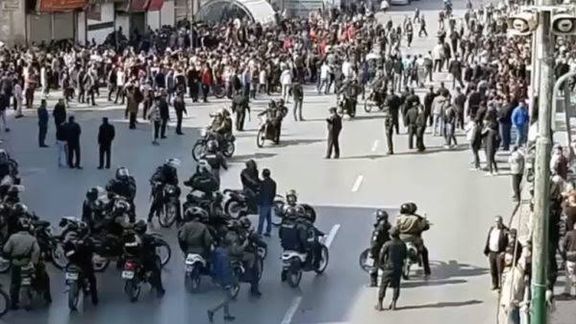
Family members of the victims of the November 2019 protests have formed an association to call for justice, the Aban Families For Justice.
The new victims' association aims to keep the issue of the brutal crackdown of 2019 in the public mind and lobby for justice through activities including preparing an archive of documentation, holding anniversaries and commemoration events for the victims, and filing cases at the international courts.
A series of nationwide protests in Iran, known as Bloody November, took place in 2019. Initially triggered by a 50 to 200-percent increase in fuel prices, the demonstrations quickly turned into calls for the overthrow of the government and Supreme Leader Ali Khamenei.
According to a report by a rights group, at least 3,000 protesters were killed by the Islamic Republic security forces from November 15 to 17, and nearly 20,000 arrested. Reuters at the time reported 1,500 deaths.
"Due to the widespread crimes of the Islamic Republic in Bloody November, it was not possible to communicate with all the families during the past 43 months. This association was formed with the cooperation of a number of families, but it belongs to all the freedom-loving people of Iran,” the group said in a statement.
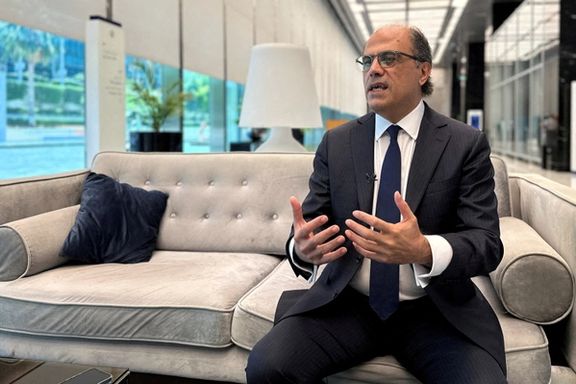
Lebanon slid deeper into crisis on Wednesday when Hezbollah and its allies thwarted a bid by their rivals to elect a top IMF official as president.
The failure by the parliament to vote sharpened sectarian tensions and underlined the dim hopes for reviving the crumbling state.
Four years since Lebanon slid into a financial meltdown that marks its worst crisis since the 1975-90 civil war, parliament failed for a 12th time to elect someone to fill the post reserved for a Maronite Christian under the country's sectarian system.
Lawmakers from the Iran-backed armed Shi'ite group Hezbollah and allies withdrew from the session to obstruct a bid by the main Christian parties to elect IMF official Jihad Azour.
The standoff has opened up a sectarian faultline, with one of Hezbollah's main Christian allies - Gebran Bassil - lining up behind the bid to elect Azour, alongside anti-Hezbollah Christian factions.
Azour, the IMF's Middle East Director and an ex-finance minister, won the support of 59 of parliament's 128 lawmakers in an initial vote, short of the two-thirds needed to win in the first round. Suleiman Frangieh, backed by Hezbollah and its allies, got 51 votes.
Hezbollah and its allies then withdrew, denying the two-thirds quorum required for a second round of voting in which a candidate can win with the support of 65 lawmakers.
It leaves Lebanon with no immediate prospect of filling the presidency, which has been vacant since the term of the Hezbollah-allied President Michel Aoun ended in October.
Hezbollah, which is designated as a terrorist group by the United States, has unleashed fierce rhetoric in their campaign against Azour, describing him as a candidate of confrontation.
Azour, 57, has said he wants to build national unity and implement reforms in the country.
Reporting by Reuters
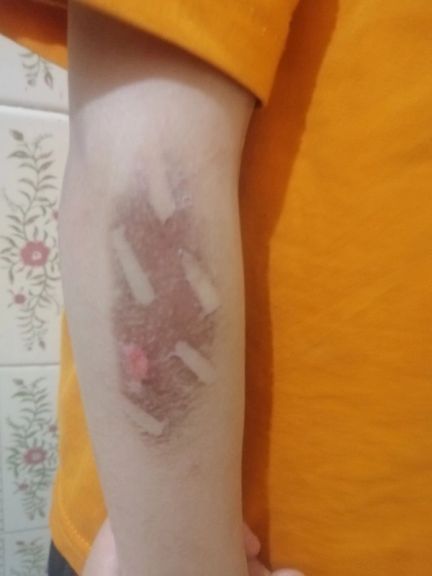
After an Iranian daily published a report about the harrowing ordeal of dozens of kids in a state orphanage run by clerics, the authorities have pressured the newspaper to redact its article.
Iranian journalist Mohammad Bagherzadeh said in a tweet on Monday that sources of the report, one of whom was a former employee of the state charity organization, were contacted and threatened.
Without saying who contacted the sources, Bagherzadeh said they told them either they rescind their statements or would be charged with insulting the clergy. He added that one of the sources was called in by the judiciary earlier in the day.
The original report was published by Etemad newspaper on June 11, revealing cases of child abuse at an orphanage operating under the supervision of the State Welfare Organization of Iran.
The operations of the center,whose employees were reportedly clerics, were suspended after the report published by the daily was also confirmed by several other sources.
In one of the cases, the clerics who were working as social workers put burning-hot clothing-iron on the hands and feet of a seven-year-old child as a punishment for bedwetting. Then they imprisoned him in an old bathroom infested with cockroaches and he was fed with dry bread and water for about a week.
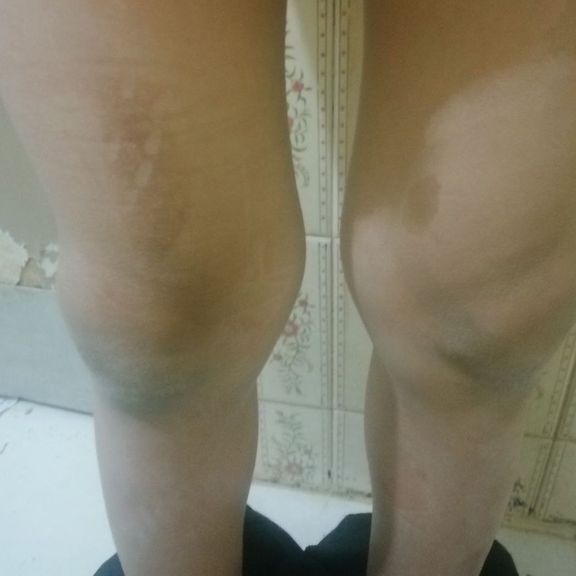
According to one of the sources, who blew the whistle after he was fired from the center, the situation of all the 24 children kept at the orphanage for the past eight years were suffering from somewhat similar abuse.
For example, the clerics had devised a scoring system to evaluate the behavior of the children, subjecting them to serious psychological torture.
The accounts of these abuses and their validity were also confirmed by other sources, who also used to work there.
One of the sources was cited by Etemad as saying that "The children of the center were strangely afraid of one of the managers, who himself explained the reason for this fear: Since the early days, I scared the hell out of the children, so they would know who’s the boss here. I told one of the kids that I would cut his tongue and hit him on the mouth repeatedly until it was full of blood; and now these children are afraid of me like death.”
Another source told the paper that in one of the cases, a child was so traumatized by the physical and psychological sufferings inflicted by one of the female managers of the center that wanted to commit suicide, but he was finally dissuaded from any high-risk behavior and was put to sleep with a pill.
Mohamamd-Javad Hosseini, one of the senior officials of the State Welfare Organization of Iran, said that the center was given a warning and was only suspended temporarily because there were no prior complaints against it. The guardianship of the children was terminated, and new staff took control of the center, he added.
Reports of such abuses are usually buried by authorities but even with all the coverups the number of cases that made headlines is very high. The most recent case took place less than a month ago, when the manager of a center was arrested for abuse of handicapped children in the city of Shiraz.